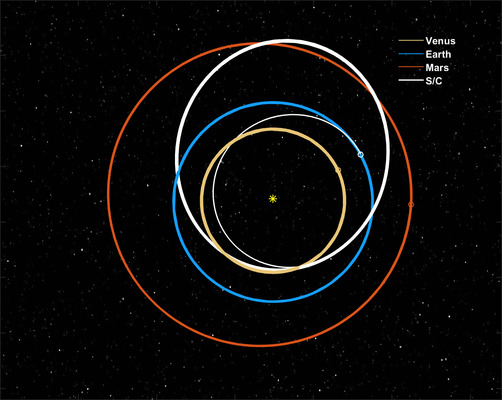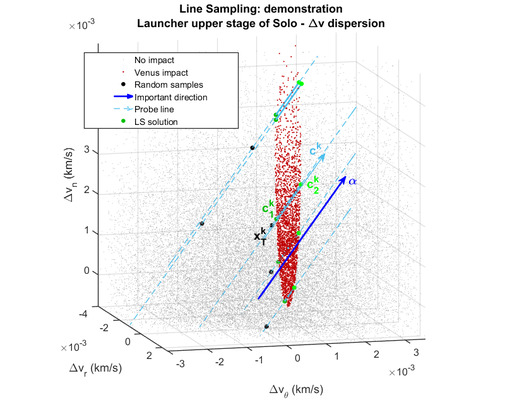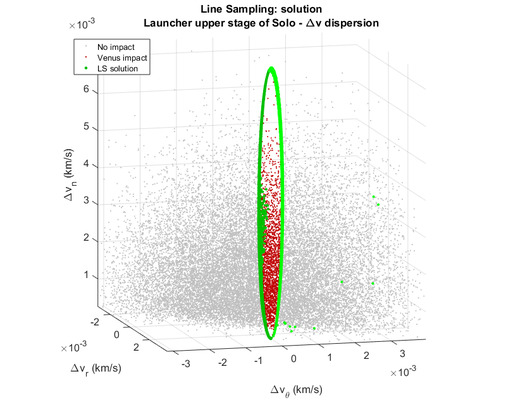
The goal of this research is to develop efficient techniques to demonstrate that the planetary protection requirements are met for the European Space Agency (ESA) science missions. Efficient, accurate and robust techniques for propagating interplanetary orbits in multi-body dynamics in presence of fly-bys will be developed exploiting numerical and semi-analytical techniques. Tools for mapping the distribution of uncertain initial conditions or errors in the injection manoeuvre will be devised and applied to planetary protection compliance verification.


Research outcomes
- Numerical orbital propagation
- Symplectic integration methods were selected, implemented and compared to already available schemes, showing that their formulation (which includes the conservation of total energy for Hamiltonian dynamics) can improve the accuracy of the single propagation when the distance from planets is large
- The methods were also compared on a statistical level, confirming that the choice of the integration scheme does not affect the result of the Monte Carlo analysis involved in the verification of planetary protection requirements
- A numerical method based on the Jacobian of the equations of motion was devised to identify during the integration when a fly-by occurs by exploiting information from the dynamics
- Impact probability estimation
- Advanced techniques to sample the initial uncertainty such as Line Sampling and Subset Simulation were analysed and compared in different cases, with focus on Line Sampling which was applied to planetary protection analysis, successfully increasing the accuracy (confidence level) of the impact probability estimate
- The theoretical formulation of Line Sampling already available in literature was extended to provide a better understanding of the performance of the method, and an approximate formula for its standard deviation was devised to allow an a-priori estimation for the required number of runs for a desired confidence level
- The algorithm was improved by adding the correction of the sampling direction to improve the efficiency of the analysis and the accuracy of the probability estimation
Scientific production
- M. Romano, C. Colombo, J. M. Sánchez Pérez, “Verification of planetary protection requirements with symplectic methods and Monte Carlo Line Sampling,” 68th International Astronautical Congress, Adelaide, Australia, 25-29 September 2017. Paper IAC-17-C1.9.5
- M. Romano, C. Colombo, J. M. Sánchez Pérez, “Efficient planetary protection analysis for interplanetary missions,” 69th International Astronautical Congress, Bremen, Germany, 1-5 October 2018. Paper IAC-18-A3.5.10
Advisors
- Camilla Colombo
- Jose Manuel Sánchez Pérez (ESA/ESOC)
Researcher
